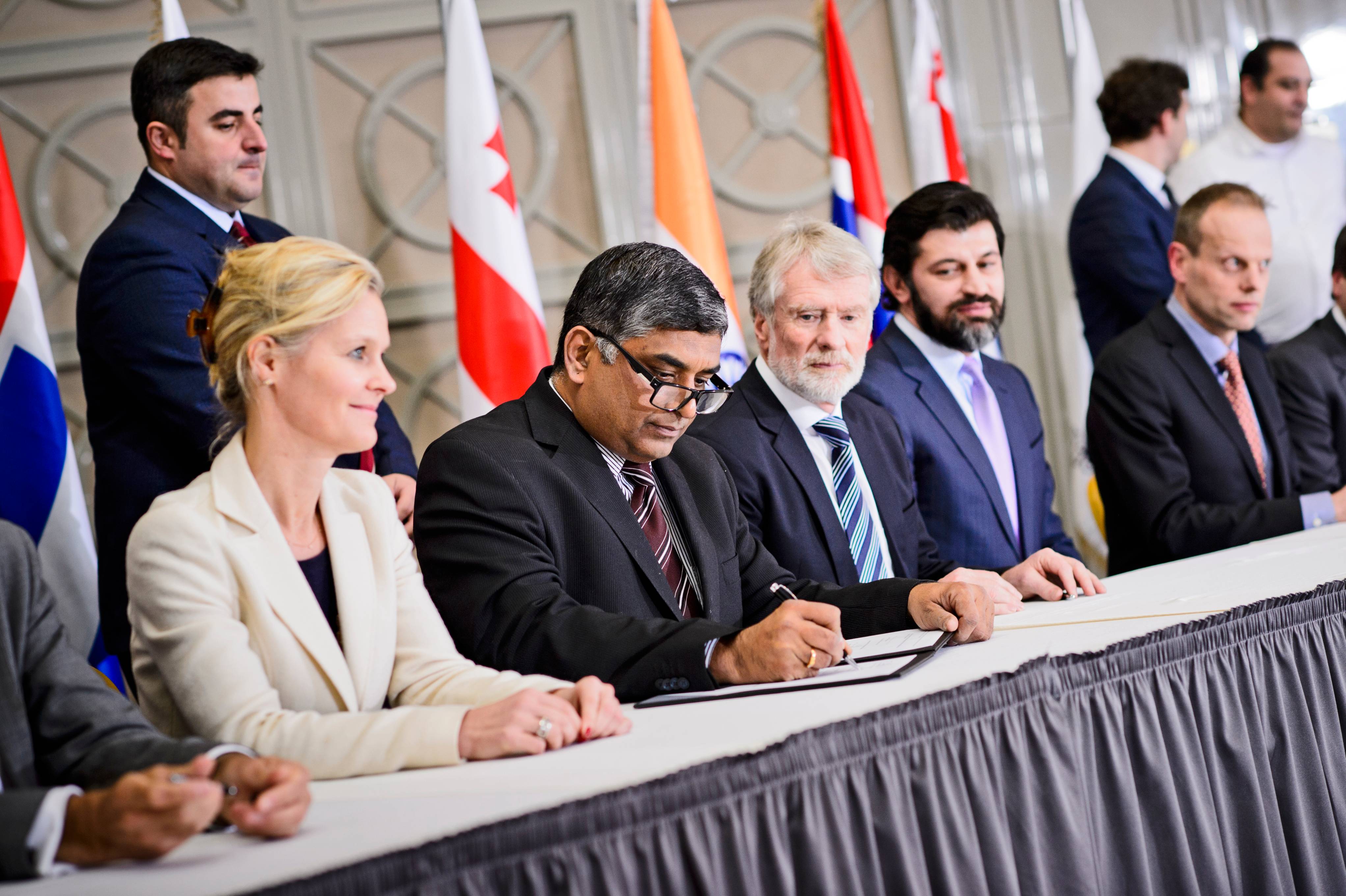Articles/interviews

Agenda.ge: Global investors contribute to Georgia’s new Hydro Power Plant
Several international financial institutions are teaming up to help Georgia tap into its hydropower potential and achieve energy self-sufficiency by investing $400 million USD in the construction and operation of Shuakhevi Hydro Power Plant (HPP).
The Shuakhevi HPP is a run-of-the-river plant currently under construction in the Autonomous Republic of Adjara, Georgia. Construction on the project began in 2013 and it is expected to be operational in 2016.

Georgia's former Prime Minister Bidzina Ivanishvili attended starting od construction of Shuakhevi HPP in 2013. In his speech he declared that it was a major investment made in Georgia.
The HPP is expected to produce 450 gigawatt (GW) hours of power annually and reduce greenhouse gas emissions by more than 200,000 tonnes per year.
"Implementation of such projects is a very big help for developing Georgia’s economy,” said Georgia’s Prime Minister Irakli Garibashvili.
"First of all it will have a very positive impact on the local municipality’s budget, which will gain 2 million GEL in income from this project. This will enable us to do more for the region,” he said.
The PM noted 600 local people were already employed and involved in the Shuakhevi project.

The current Prime Minister Irakli Garibashvili believed local municipality's budget would gain 2 million GEL in income from this project.
The last phase of construction will be financed by Adjaristsqali Georgia – a joint venture between India’s Tata Power and Norway's Clean Energy Invest (40 percent each), and the remaining 20 percent by the International Finance Corporation (IFC).
Adjaristsqali Georgia was a special purpose vehicle set up to develop the hydropower resources on the Adjaristsqali River and its tributaries in Adjara, in south-western Georgia.
The $250 million debt financing arranged by IFC represented the largest-ever private hydropower investment in Georgia, consisting of two $90 million long-term senior loans; one from the Asian Development Bank (ADB) and the European Bank for Reconstruction and Development (EBRD), and $70 million from IFC.
IFC’s total investment in this project is $104 million, which includes a $34 million equity investment in the project company.
The Shuakhevi HPP aimed to satisfy Georgia’s electricity demand during winter, reducing dependence on imported fuel and increase renewable energy output. It will also foster cross-border electricity trading at other times of the year by exporting electricity to Turkey through a transmission line financed by EBRD. The project was designed to benefit local communities by creating jobs, boosting municipal incomes and upgrading local roads.
The Shuakhevi HPP is expected to produce 450 gigawatt (GW) hours of power annually and reduce greenhouse gas emissions by more than 200,000 tonnes per year.
"This project demonstrates that non-recourse cross border financing is available for greenfield hydro projects in Georgia, and will be important for the development of the sector and Georgia,” said Clean Energy chairman Baard Mikkelsen.
Tata Power managing director Anil Sardana thanked the Georgian Government and strategic partners for their support in exploring Georgia’s huge hydropower potential.
"We are confident that the potential will be realised with exemplary clean governance and speed of action,” Sardana said.
Michael Barrow, ADB Deputy director general for Private Sector Operations Department, said: "The project will promote regional cooperation and generate additional revenues for Georgia through energy trade.”

IFC, EBRD, ADB are teaming up to help Georgia tap into its hydropower potential and achieve energy self-sufficiency.
Some $15 million of ADB’s $90 million investment will be provided by the Canadian Climate Fund for the Private Sector in Asia, funded by Canada’s government and administered by ADB.
Wiebke Schloemer, IFC Regional Industry head of Infrastructure in Europe, Middle East and North Africa region, believed the Shuakhevi hydropower project would strengthen investor confidence in Georgia and stimulate more private sector investment in the sector.
The Shuakhevi project is the first hydropower project in Georgia certified by the United Nations Framework Convention on Climate Change for carbon emission reductions.



